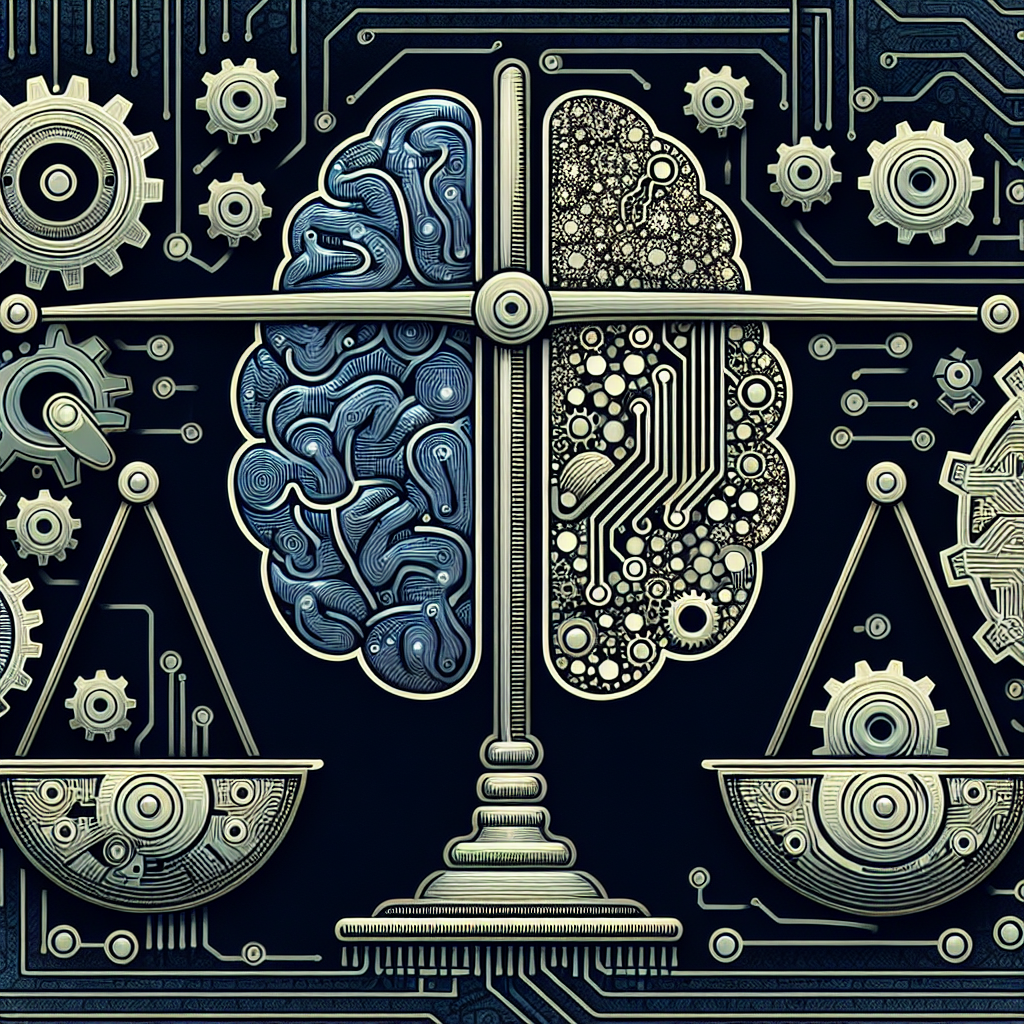Artificial Intelligence (AI) has been increasingly integrated into various industries, including banking. AI-powered banking systems are revolutionizing the way financial institutions operate, providing more efficient and personalized services to customers. However, the adoption of AI in banking also brings a host of ethical implications that need to be carefully considered and addressed.
Ethical implications of AI in banking can range from issues of privacy and data security to concerns about bias and discrimination in decision-making processes. It is crucial for banks and regulators to navigate these ethical challenges to ensure that AI technologies are used responsibly and ethically.
Privacy and Data Security
One of the primary ethical concerns surrounding AI-powered banking systems is the protection of customer data. As banks collect and analyze vast amounts of data to personalize services and improve decision-making processes, there is a risk of data breaches and unauthorized access to sensitive information.
Banks must ensure that they have robust data protection measures in place to safeguard customer data from cyber threats and breaches. This includes implementing encryption protocols, access controls, and regular security audits to identify and address vulnerabilities in the system.
Furthermore, banks must be transparent with customers about how their data is being collected, stored, and used. Customers should have the right to opt-out of data collection and have control over their personal information. Banks should also provide clear information about their data retention policies and how they will use customer data to improve services.
Bias and Discrimination
Another ethical concern with AI-powered banking systems is the potential for bias and discrimination in decision-making processes. AI algorithms are trained on historical data, which can contain biases that reflect societal prejudices and inequalities. This can result in discriminatory outcomes, such as denying loans or setting unfair interest rates based on factors like race, gender, or socioeconomic status.
To address this issue, banks must ensure that their AI algorithms are designed and tested to be fair and unbiased. This includes regularly monitoring and auditing the algorithms to identify and correct any biases that may emerge. Banks should also establish clear guidelines for decision-making processes and ensure that human oversight is in place to review and intervene in cases where bias is detected.
Transparency and Accountability
Transparency and accountability are essential principles for ethical AI in banking. Banks must be transparent with customers about how AI technologies are being used to make decisions that impact their financial well-being. This includes providing explanations for automated decisions and giving customers the opportunity to appeal or challenge those decisions.
Banks should also establish mechanisms for accountability to ensure that AI systems are used responsibly and ethically. This includes creating oversight committees to monitor AI implementations, conducting regular audits of AI algorithms, and establishing clear guidelines for ethical decision-making.
Customer Trust and Engagement
Building customer trust and engagement is crucial for the success of AI-powered banking systems. Customers must feel confident that their data is being protected and used responsibly by banks. Banks must communicate openly with customers about the benefits and risks of AI technologies and provide opportunities for feedback and input.
Banks should also prioritize customer education and empowerment by helping customers understand how AI technologies can improve their financial experiences. This includes providing clear information about the data collected, the decisions made by AI algorithms, and the steps taken to protect customer privacy and security.
Regulatory Compliance
Regulatory compliance is another key ethical consideration for AI-powered banking systems. Banks must comply with data protection regulations, such as the General Data Protection Regulation (GDPR) in Europe and the California Consumer Privacy Act (CCPA) in the United States. Failure to comply with these regulations can result in significant fines and reputational damage for banks.
Banks should also collaborate with regulators to develop guidelines and standards for the ethical use of AI in banking. Regulators play a crucial role in ensuring that AI technologies are used responsibly and in compliance with legal and ethical standards. Banks must engage with regulators to address the ethical implications of AI technologies and work together to develop best practices for the industry.
Frequently Asked Questions (FAQs)
Q: How can banks ensure that AI algorithms are fair and unbiased?
A: Banks can ensure that AI algorithms are fair and unbiased by regularly monitoring and auditing the algorithms for biases, establishing clear guidelines for decision-making processes, and implementing human oversight to review and intervene in cases where bias is detected.
Q: What steps can banks take to protect customer data from cyber threats and breaches?
A: Banks can protect customer data from cyber threats and breaches by implementing encryption protocols, access controls, and regular security audits to identify and address vulnerabilities in the system. Banks should also be transparent with customers about how their data is being collected, stored, and used.
Q: How can banks build customer trust and engagement with AI-powered banking systems?
A: Banks can build customer trust and engagement by communicating openly with customers about the benefits and risks of AI technologies, providing opportunities for feedback and input, and prioritizing customer education and empowerment. Customers must feel confident that their data is being protected and used responsibly by banks.
Q: What are some best practices for banks to ensure ethical compliance with AI technologies?
A: Some best practices for banks to ensure ethical compliance with AI technologies include establishing transparency and accountability mechanisms, complying with data protection regulations, collaborating with regulators to develop guidelines and standards for the ethical use of AI, and prioritizing customer trust and engagement.
In conclusion, the adoption of AI in banking presents significant opportunities for innovation and efficiency. However, it also brings a host of ethical implications that must be carefully considered and addressed. Banks must prioritize data protection, fairness, transparency, and accountability to ensure that AI technologies are used responsibly and ethically. By navigating these ethical challenges, banks can build trust with customers, regulators, and stakeholders and contribute to a more ethical and sustainable future for the banking industry.

